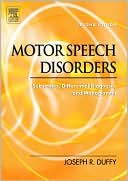Counseling in Audiologic Practice: Helping Patients and Families Adjust to Hearing Loss
Counseling in Audiologic Practice is designed to guide students and practicing audiologists in the mastery of counseling skills to meet the needs of patients and families suffering from hearing loss.\ \ This text examines the range of emotions experienced by parents following the diagnosis of pediatric hearing loss as well as the less recognized emotional impact accompanying adult hearing loss. Discussion based upon counseling theory reveals the variety of dynamics within audiologists'...
Search in google:
Counseling in Audiologic Practice is designed to guide the practicing audiologist or the audiology student in the mastery of counseling skills to meet the needs of patients and families suffering from hearing loss.The text examines the range of emotions experienced by parents following the diagnosis of pediatric hearing loss as well as the less recognized emotional impact accompanying adult hearing loss. Discussion based upon counseling theory reveals the variety of dynamics within audiologists' interactions with patients to help clinicians more completely address the personal adjustment/support counseling needs of individuals, families, and groups as well as those approaching audiologic services from within the context of a culturally divergent background Doody Review Services Reviewer:Jennifer Sellinger, Master of Science(George Washington University)Description:This book examines the emotional impact of hearing loss on hearing impaired individuals and their families (from childhood to adulthood). At the same time, it explores constructive ways for audiologists to interact with and counsel what can be a diverse clientele.Purpose:According to the authors, the book is designed to provide information and exposure to an area of audiologic practice that is not typically addressed in depth in the curriculum of existing graduate programs. The book is intended to be a supplement to experiences obtained in clinical practice. As counseling hearing impaired individuals is not typically emphasized in current graduate coursework, it is certainly an area that needs further focus and attention. Audience:The book is intended not only for students and teachers in the field of audiology, but also for practicing audiologists as well as other medical and educational professionals who may interact with hearing impaired individuals. The informational content of the book does seem to be well suited for the intended audiences; however, the layout of the book and presentation of the material, including some exercises and background information, seem more suited for a classroom setting. The authors' backgrounds in the field of audiology provide them with the experience necessary to publish this book. Features:The book provides a definition of counseling within the field of audiology as well as explaining the need for counseling in the field and how it applies to the various clientele audiologists encounter. It breaks down different categories of clientele and discusses their various responses to a diagnosis of hearing loss. It goes on to provide information on specific counseling techniques and strategies for these various populations. There are case scenarios presented at the beginning of and throughout each chapter, as well as exercises drawing on the covered material at the end of each chapter. The appendixes provide resources and additional information for professionals working with various populations, and include communication suggestions that they can pass on to their clients.Assessment:This is a book that can be valuable to students in the field of audiology and practicing audiologists alike. Some of the material and structure of the book is geared more towards a student population and classroom use, but much of the information can be a valuable resource to practicing audiologists and other service providers as well as those with hearing loss. Counseling is not an area that is given extensive coverage in many graduate programs, so a book such as this could be used to great benefit in teaching future professionals. It can also be a resource to those already in the field who would like a further understanding of counseling and how it relates to audiologic practice.
Foreword.Preface. 1. Audiologic Counseling Defined. 2. Emotional Responses to Hearing Loss. 3. Patient-Counselor Dynamics. 4. Hearing Loss Consultation. 5. Growing Up with Hearing Loss: Counseling Parents, Children, and Adolescents. 6. Effective Interaction with Adults Who Have Acquired Hearing Loss. 7. Group Counseling Within Hearing Loss Intervention. 8. Multicultural Considerations in Clinical Practice.APPENDICES.1. National Support Programs and Organizations for Professionals and Families.2. Bibliotherapy: Suggested Readings for Children, Adults, and Families Living with Hearing Loss.3. Parental Suggestions for Siblings of Children with Hearing Loss.4. Classroom Suggestion for Teaching Students with Hearing Loss.5. Teachers' Psychosocial Support of Students with Hearing Loss.6. Guidelines for Better Adjustment to Hearing Aids.7. Communication Suggestions When Speaking to Someone with Hearing Loss.8. Communication Suggestions for Those with Hearing Loss.9. Guidelines Toward Speaking Clearly.10. Successful Dining Out with Hearing Loss.11. Understanding Tinnitus and Its Management.12. Hearing Help Workshop Outline.13. Audiology Counseling Growth Checklist (ACGC).
\ Reviewer: Jennifer Sellinger, Master of Science(George Washington University)\ Description: This book examines the emotional impact of hearing loss on hearing impaired individuals and their families (from childhood to adulthood). At the same time, it explores constructive ways for audiologists to interact with and counsel what can be a diverse clientele.\ Purpose: According to the authors, the book is designed to provide information and exposure to an area of audiologic practice that is not typically addressed in depth in the curriculum of existing graduate programs. The book is intended to be a supplement to experiences obtained in clinical practice. As counseling hearing impaired individuals is not typically emphasized in current graduate coursework, it is certainly an area that needs further focus and attention. \ Audience: The book is intended not only for students and teachers in the field of audiology, but also for practicing audiologists as well as other medical and educational professionals who may interact with hearing impaired individuals. The informational content of the book does seem to be well suited for the intended audiences; however, the layout of the book and presentation of the material, including some exercises and background information, seem more suited for a classroom setting. The authors' backgrounds in the field of audiology provide them with the experience necessary to publish this book. \ Features: The book provides a definition of counseling within the field of audiology as well as explaining the need for counseling in the field and how it applies to the various clientele audiologists encounter. It breaks down different categories of clientele and discusses their various responses to a diagnosis of hearing loss. It goes on to provide information on specific counseling techniques and strategies for these various populations. There are case scenarios presented at the beginning of and throughout each chapter, as well as exercises drawing on the covered material at the end of each chapter. The appendixes provide resources and additional information for professionals working with various populations, and include communication suggestions that they can pass on to their clients.\ Assessment: This is a book that can be valuable to students in the field of audiology and practicing audiologists alike. Some of the material and structure of the book is geared more towards a student population and classroom use, but much of the information can be a valuable resource to practicing audiologists and other service providers as well as those with hearing loss. Counseling is not an area that is given extensive coverage in many graduate programs, so a book such as this could be used to great benefit in teaching future professionals. It can also be a resource to those already in the field who would like a further understanding of counseling and how it relates to audiologic practice.\ \ \ 4 Stars! from Doody\ \
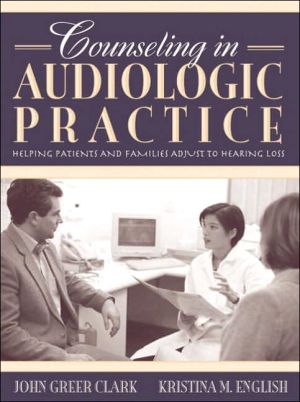
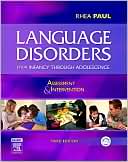

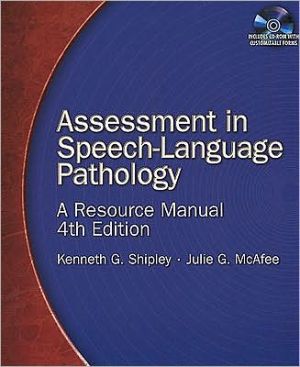
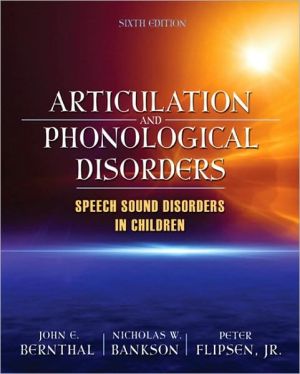
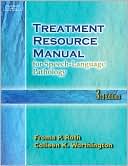
![Introduction to Audiology [With CDROM] Introduction to Audiology [With CDROM]](/application/data/covers/31/18/9780205593118.jpg)
